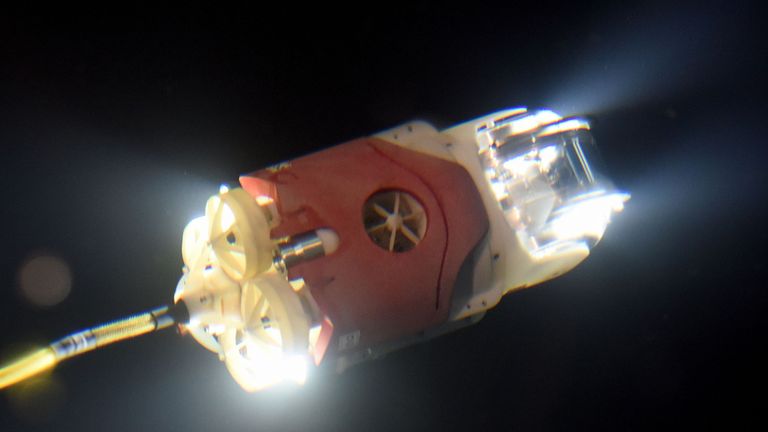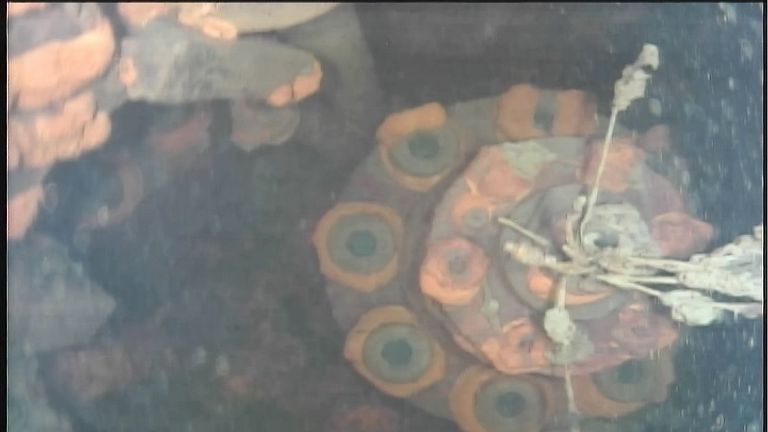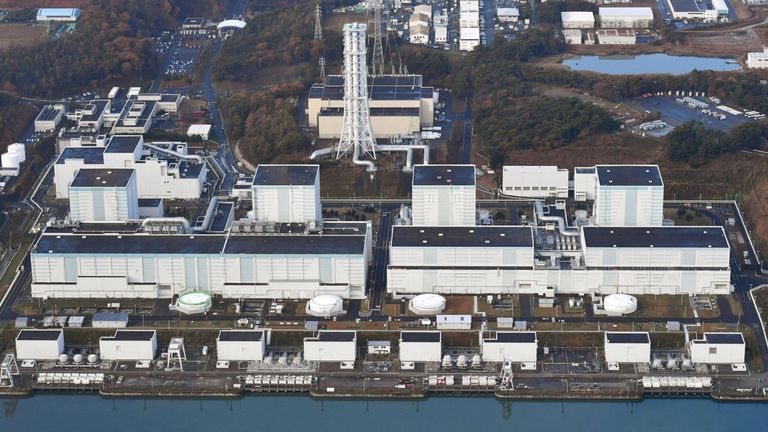Swimming robot probes radioactive water at Fukushima's nuclear reactor
The robot, nicknamed "Little Sunfish", has captured previously unseen shots of underwater damage at the crippled nuclear plant.
Wednesday 19 July 2017 21:34, UK
An underwater robot has begun probing the inside of the badly damaged Fukushima nuclear power plant in Japan.
The remote-controlled marine vehicle, which is about the size of a loaf of bread, has been sent into the primary containment vessel of the Unit 3 reactor in an attempt to find melted fuel.
The Fukushima plant was crippled by a massive undersea earthquake on 11 March 2011, which sent a huge tsunami sweeping across Japan's northeast coast.
More than 18,000 people were killed in the disaster, and the damage to the Fukushima plant was the worst of its kind since Chernobyl in 1986.
Images captured by the underwater bot, nicknamed "Little Sunfish", on its first day at work show key structures - including a grate platform below the reactor core and a control rod drive - have been torn down and knocked out of place by the 2011 meltdown.
Experts believe that melted fuel has breached the reactor core, falling to the bottom of the chamber where it is submerged by 6m (20ft) of highly radioactive water.
However, so far researchers have been unable to find any obvious signs of the melted nuclear fuel.
The bot - which is equipped with lights, five propellers, two cameras and a device to measure radiation - is designed to tolerate radiation of up to 200 sieverts, a level that can kill humans instantly.
It has been left in the reactor and will go deeper inside for a fuller investigation later this week.
Two previous probes - undertaken by a scorpion-shaped robot and a snake-shaped robot - failed to bring back data from the plant's other two reactors.
Unit 3 is believed to be the most severely damaged of the three.
Remote-controlled robots are key to the decommissioning process, which is likely to take decades due to the high levels of radiation and structural damage.
Last year, the Japanese government said it expects the





